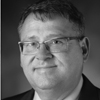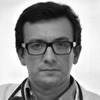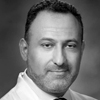Convidados Internacionais Confirmados

DANIEL C. DOUEK – EUA
Dr. Douek is a Senior Investigator and the Chief of the Human Immunology Section, Vaccine Research Center, NIAID, National Institutes of Health, Bethesda, USA
Dr. Douek studied medicine at the Universities of Oxford and London. He then practiced internal medicine, before pursuing a PhD in Immunology at the University of London. Dr. Douek was appointed to the NIH Vaccine Research Center in November 2000.
His laboratory, the Human Immunology Section, studies the processes that determine the course of human diseases in which the immune system, particularly its T cell arm, plays a central role in their pathogenesis and outcome. He aims to use the knowledge gained to initiate clinical studies of new therapeutic and vaccine approaches.
Dr. Douek is a widely published author in the field of human immunology having made significant discoveries in thymic function, immune repertoire diversity, T-cell mediated immunity, mucosal immunology, innate immunity, hematopoietic progenitor cell transplantation. Currently, the main focus of his lab is both the pathogenesis and immune control of HIV infection.
Dr. Douek sits on numerous scientific advisory boards and journal editorial boards.
Dr. Douek was given the World AIDS Day Award in 2007, the NIH Director’s Award in 2008, and was recognized as one of the world’s top 50 scientists by Scientific American in 2005. He was named as one of the 2012 POZ 100 for his significant contributions to accelerating the end of AIDS. In 2014 through 2017 he was named in the Thomson Reuters report of the 1% most highly cited scientists in their field.

DAVID NICOLAU – EUA
David P Nicolau PharmD, FCCP, FIDSA
Dr. David Nicolau is the Director of the Center for Anti-Infective Research and Development at Hartford Hospital in Hartford, Connecticut.
After graduating from Northeastern University, he completed a residency in hospital pharmacy at Boston University Medical Center. After receiving his PharmD from the Medical University of South Carolina, Dr. Nicolau completed a residency in adult internal medicine at the university’s affiliated hospital and a fellowship in Infectious Diseases at Hartford Hospital.
David Nicolau’s research activities involve a wide range of preclinical drug development studies to assess the in vitro potency, in vivo efficacy and toxicity profiles of novel compounds. He has been a principal investigator for Phase I – IV studies, as well as Investigational New Drug applications. Dr Nicolau is also widely recognized for his efforts focusing on the development of antimicrobial utilization strategies to improve outcomes and reduce the cost of care in the infected patient.
David Nicolau’s investigations are reported in over 700 publications, 475 abstracts and 1,000 local, national or international presentations.

DAVID WATKINS – EUA
Dr. David Watkins’ most significant contributions to the field of microbiology relate to the role of MHC class I molecules in host defense. His elucidation of the kinetics of appearance of MHC-restricted CD8+ T cell responses, escape, and the impact of cellular responses on immunological control in the SIV system has provided fundamental insights for those working with HIV infection of humans. Many of his former students are now independent principal investigators at leading research Universities.

DIMITRIOS P. KONTOYIANNIS – EUA
Dimitrios P. Kontoyiannis, M.D., Sc.D., FACP, PhD (Hon), FIDSA, FECMM, FAAM, FAAAS
Texas 4000 Distinguished Endowed Professor For Cancer Research
The University of Texas M. D. Anderson Cancer Center, Houston, TX
Dimitrios P. Kontoyiannis, MD, ScD, PhD (Hon) is the Texas 4000 Distinguished Endowed Professor and Deputy Head-Research in the Division of Internal Medicine at The University of Texas MD Anderson Cancer Center. He is also an adjunct professor at Baylor College of Medicine and University of Houston College of Pharmacy in Houston Texas. He received his medical degree Summa Cum Laude (top of his class) from the National and Kapodistrian University of Athens in Greece. Dr. Kontoyiannis also completed a post-doctoral clinical research fellowship at the Section of Infectious Diseases at The University of Texas MD Anderson Cancer Center in Houston, TX, followed by training in Internal Medicine at Baylor College of Medicine in Houston, TX, where he served as a Chief Medical Resident. He was subsequently trained as a clinical fellow in Infectious Diseases at Massachusetts General Hospital and obtained a Master in Clinical Sciences from Harvard Medical School in Boston. He spent 3 years at the Whitehead Institute for Biomedical Sciences/Massachusetts Institute of Technology as a fellow in the Harvard MIT Clinical Investigators Training Program. Dr. Kontoyiannis has authored more than 520 peer-reviewed manuscripts and been invited to give over 320 lectures in international conferences and prestigious institutions in US and abroad. He serves as an associate editor for Mycoses and J of Infection and sits in the editorial Boards of many journals. An international expert in clinical and experimental mycology, and is considered the leading expert in mycology world-wide (expertscape.com) and among the 1-2 most highly cited investigators in the area of mycology with over 36.850 citations (Google Scholar, accessed February 19, 2018) with an H index of 94. His research group is credited for sustained and impactful contributions to medical and translational mycology through advances in antifungal pharmacology, the study of host defenses against fungii, novel diagnostics, clinical trials, dedicated mentoring, organizational service and life-saving patient care. Dr Kontoyiannis is the recipient of many awards such as the 2004 American Society for Microbiology award for Outstanding Research in the Pathogenesis of Microbial Diseases (mentor), and The University of Texas MD Anderson Cancer Center 2004 Faculty E. N Cobb Scholar Award, Faculty Achievement Award, M. D. Anderson Cancer Center, 2007, The Distinguished Clinical Faculty Mentoring Award of at MD Anderson Cancer Center, 2012, The Billy Cooper Memorial award from The Medical Mycology Society of Americas (2013), America’s Top doctors (2015), The Drouhet Medal from the European Confederation of Medical Mycology (2015), Littman award from the Mycology Society of NY (2016), emeritus member of Paul-Ehrlich-Society(2016), honorary PhD (Honoris Causa) from the National Kapodistrian University in Athens, Greece (2017). Dr Kontoyiannis was an ASM Distinguished Lecturer (2014-2016) and is the president elect of Immunocompromised Host Society (2016-2018). He is a fellow of the American College of Physicians and the Infectious Diseases Society of America and an inaugural lifetime fellow of the European Confederation for Medical Mycology (2016). In 2017 he was named fellow in the American Academy of Microbiology and as a fellow in the American Association for the Advancement of Science (AAAS). Kontoyiannis is the recipient of Award for Excellence in Clinical Microbiology and Infectious Diseases of the European Society of Clinical Microbiology and Infectious Diseases (ESCMID) for 2018.

HAJO GRUNDMANN – ALEMANHA
Hajo Grundmann, born in 1955, studied Sinology, Nursing and Human Medicine at the Universities of Bochum and Freiburg, Germany. He specialised in Clinical Tropical Medicine, Medical Microbiology and Hygiene & Environmental Medicine and received his PhD at the University of Freiburg, Germany and an MSc in Epidemiology of Communicable Diseases at the London School of Hygiene. He worked clinically as a medical doctor at university hospitals in Freiburg, Berlin, and Nottingham and carried out extensive field studies in Taiwan, Venezuela and Tanzania. For eight years, he was the Project Leader of the European Antimicrobial Resistance Surveillance System (EARSS) funded by the European Commission and the Dutch Ministry of Health at the Dutch National Institute for Public Health and the Environment (RIVM). Currently, he is the Director of the Institute for Infection Prevention and Hospital Epidemiology at the Medical Centre – University of Freiburg, Germany. He also holds the Chair for Infectious Diseases Epidemiology at the University of Groningen. His major research interests are the molecular evolution, epidemiology, population dynamics and health impact of emerging antimicrobial resistance and health care associated infections. – Address: University Medical Centre Freiburg, Faculty of Medicine, University of Freiburg, Breisacherstr. 115b, 79106 Freiburg, Germany.

JAIME LORA-TAMAYO – ESPANHA
Jaime Lora-Tamayo, MD, PhD. Spanish medical doctor, did the residency in Internal Medicine in the Hospital Universitario de Bellvitge (Barcelona, Spain), and then a fellowship in the Unit of Bone and Joint Infection of that same Hospital. This Unit is a national referral center for the treatment of complex cases of osteomyelitis and orthopedic hardware-related infection. His PhD research focused in the treatment of prosthetic joint infection, including clinical studies and experimental research with in vivo and in vitro models of biofilm-associated infection. Part of this research was conducted in the Monash Institute of Pharmaceutical Sciences (Melbourne, Austrlaia). He is currently working as an Internal Medicine and ID Consultant in the Orthopedic Ward of the Hospital Universitario 12 de Octubre (Madrid, Spain), where he continues with his clinical research in bone and joint infection.

NICHOLE KLATT – EUA
Dr. Nichole Klatt is an associate professor, vice chair of research, and the Adrienne Arsht Endowed Chair in Pediatric clinical research in the Department of Pediatrics, Miller School of Medicine, and Sylvester Cancer Center of University of Miami. Prior to this, Dr. Klatt was an associate professor in the Department of Phamarceutics at the University of Washington from 2012-2018. Dr. Klatt received her PhD from Emory University in Immunology and Molecular Pathogenesis in 2009, and was also a visiting PhD candidate at the University of Pennsylvania from 2006-2008. Dr. Klatt performed her postdoctoral research in the Laboratory of Molecular Microbiology at the National Institutes of Health from 2009-2012. The goal of Dr. Klatt’s research laboratory is to understand mechanisms of microbiome and mucosal dysfunction to improve human health. The lab studies the microbiome in host processes in the gastrointestinal tract and female reproductive tract in the context of infectious diseases and cancer.

PHILIPPE MAYAUD – INGLATERRA
Dr Philippe Mayaud is a Professor of Infectious Diseases & Reproductive Health at the London School of Hygiene & Tropical Medicine (LSHTM), London
Appointments:
1. Clinical Research Department, Faculty of Infectious & Tropical Diseases, LSHTM
2. Visiting Professor, Faculty of Medicine, University of Sao Paulo, Brazil
3. Honorary Professor, School of Medicine, Faculty of Health Sciences, University of the Witwatersrand, Johannesburg, South Africa
Background: Philippe Mayaud is a Clinical epidemiologist and clinical triallist trained in France and the UK in the field of HIV and sexually transmitted infections (STIs). Philippe has conducted many research projects in Brazil and Africa with a focus on intervention research and a special interest in viral STIs such as HSV2, HPV and recently Zika virus. He was the recipient of a CAPES grant under the ‘Ciencias sim fronteiras’ programme for Visiting Professorship at the Department of Infectious Diseases, FMUSP (2015-2018) with Professors Aluisio Segurado and Ana Sara Levin.

ROY F. CHEMALY – EUA
Dr Roy Chemaly is a Professor of Medicine in the Department of Infectious Diseases, Infection Control & Employee Health at The University of Texas MD Anderson Cancer Center in Houston, Texas. Dr. Chemaly completed his training in infectious diseases and medical microbiology at the Cleveland Clinic Foundation in Ohio. He is board-certified in internal medicine/infectious diseases, medical quality, and medical microbiology.
During his fellowship, Dr. Chemaly completed a master’s degree in public health from Northeastern Ohio Universities in Rootstown, Ohio. In addition to Dr. Chemaly’s clinical research work in virology and multi-drug resistant organisms, he is the director of the Infection Control program at MD Anderson Cancer Center. Dr. Chemaly’s work has been reported in numerous peer-reviewed journals including New England Journal of Medicine, Blood, and Clinical Infectious Diseases. He was recently appointed as the chair of the Transplant Infectious Diseases Special Interest Group of the American Society of Bone Marrow Transplantation.

SILVIA MUÑOZ-PRICE – EUA
Dr. Munoz-Price is a Professor of Clinical Medicine at the Division of Infectious Diseases, Medical College of Wisconsin, currently serving as the Enterprise Epidemiologist for Froedtert & the Medical College of Wisconsin. Until 2014, she was the Hospital Epidemiologist for Jackson Memorial Hospital, one of the largest public hospitals in the US. Additionally, Dr. Munoz-Price holds a PhD in Epidemiology from University of Miami. Before working in academia, she worked for 5 years as a private ID consultant in the Greater Chicago area, where she described multicity outbreaks of resistant bacteria throughout the continuum of care. Most of her publications deal with Infection Control, Acinetobacter baumannii, and carbapenemase producing enterics (CRE). With over 70 peer review publications, Dr. Munoz-Price’s work has been published in prestigious academic journals, including the New England Journal of Medicine, Clinical Infectious Diseases, Antimicrobial Agents of Chemotherapy, Infection Control and Hospital Epidemiology, and the American Journal of Infection Control. Additionally, Dr. Munoz-Price is a reviewer for over a dozen journals including JAMA and Lancet Infectious Diseases. She has served as a Board member of the Society of Hospital Epidemiology of America (SHEA), and was the co-chair of SHEA’s 2016 Spring Meeting. Additionally, Dr. Munoz-Price has served as a liaison for the prestigious Healthcare Infection Control Practices Advisory Committee (HICPAC)-CDC. Currently she is the chair of the Infection Control in the Anesthesia work area guideline and is a member of the Council On Microbial Sciences (Coms) from the American Society of Microbiology.






